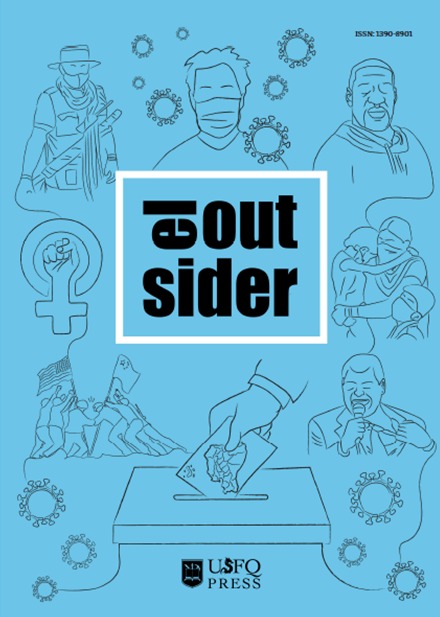Gender inequalities in times of COVID-19: a crisis of governance
Main Article Content
Abstract
The impact of COVID-19 brought into question the efficiency of the cur-rent system of response to the pandemic in the face of gender inequal-ity. The lack of a human rights-based approach to respond to the needs of feminized, non-heteronormative and impoverished bodies meant the death of thousands of people around the world, not only because of the virus, but because of a crisis of governance that was based on a pa-triarchal regime. The pandemic intensified important issues that were also ignored before the outbreak, among them the impact of the crises: economic, care and gender-based violence. For these reasons, this arti-cle seeks to make visible, from a gender and development perspective, how the COVID-19 pandemic and the government’s social, economic, and political responses to it increased inequality.
Article Details
References
Banerjee, Subhabrata. 2008. "Necrocapitalism." Organization Studies, 29, no. 12, : 1541-1563. https://doi.org/10.1177/0170840607096386
Batthyany, Karina, Natalia Genta, y Valentina Perrotta. 2012. La población uruguaya y el cuidado: Persistencias de un mandato de género. Serie Mujer y desarrollo, no.117, Santiago de Chile: CEPAL.
Burki, Talha. 2020. "The indirect impact of COVID-19 on women." The Lancet, 20: 904-905. https://doi.org/10.1016/S1473-3099(20)30568-5
CEPAL. 2020. La pandemia del COVID-19 profundiza la crisis de los cuidados en América LAtina y el Caribe. Informe sobre la evolución y los efectos de la pandemia del COVID-19 en América Latina y el Caribe, Naciones Unidas.
Dávalos, Cristen. 2020. «Localizing masculinities in the global care chains: experiences of migrant men in Spain and Ecuador.» Gender, Place and Culture: 2-20. https://doi.org/10.1080/0966369X.2020.1715347
Davies, Sara, y Bennett Belinda. “A gendered human rights analysis of Ebola and Zika: locating gender in global health emergencies.” International Affairs 92, no.5 (Septiembre): 1041-1060. https://doi.org/10.1111/1468-2346.12704
Fluri, Jennifer. 2009. "Foreign Passports Only: Geografies of (Post) Conflict Work in Kanbul, Afghanistan." Annals of the Association of American Geographers 99, no. 5, 986-994. https://www.jstor.org/stable/20621268
Global System for Mobile Association. 2020. GSMA Connected Women – The Mobile Gender Gap Report 2020. Consultado Noviembre 26, 2020. https://www.gsma.com/mobilefordevelopment/.../2020/.../GSMA-The-Mobile -Gender-Gap-Report-2020.pdf.
Gordon, Sherri. 2020. “Research shows rise in cyberbullying during COVID-19 Pandemic”. Verywell Family. Agosto 2. Consultado Noviembre 11, 2020. https://www.verywellfamily.com/cyberbullying-increasing-during-global-pandemic-4845901
Mbembé, Libby Meintjes. 2003. "Necropolitics". Public Culture 15, no.1 (Winter),11-40.
Organización de las Naciones Unidas para la Alimentación y Agricultura. 2011. The role of women in agriculture. ESA Working Paper no. 11-02, SOFA Team y Cheryl Doss.
UN Women. 2020. COVID-19 and Ending Violence Against Women and Girls. Serie EVAW COVID-19 Briefs, UN Women Headquarters.
United Nations Population Fund. 2020. COVID-19: A Gender Lenses. Informe Técnico, New York: United Nations.
United Nations Population Fund. 2020. COVID-19: A Gender Lenses. Informe Técni-co, New York: United Nations.
Wenham, Clare, Julia Smith, y Rosemary Morgan. 2020. "COVID-19: the gendered impacts of the outbreak." The Lancet 395: 846-848. https://doi.org/10.1016/ S0140-6736(20)30526-2

